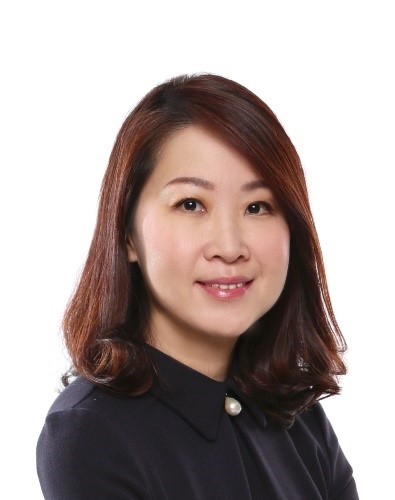A/Prof Ng Siok Bian
Department of Pathology, NUHS
My journey
I was trained in Pathology in Singapore General Hospital (SGH) in 1997 after obtaining my MBBS from National University of Singapore (NUS) in 1995. The Head of Pathology department at that time was A/Prof Ivy Sng, a haematopathologist with a keen interest in T- and NK-cell lymphomas and a member of the International Peripheral T-cell Lymphoma Study Group. She suggested that we study extranodal NK/T cell lymphoma (NKTL) as it was an aggressive disease which was poorly understood. We collected the cases and published a paper on “nasal-type extranodal Natural Killer/T-cell lymphomas: a clinicopathologic and genotypic study of 42 cases in Singapore” in Modern Pathology in 2004. It was this first experience of conducting a proper study as well as a visiting fellowship at the Laboratory of Pathology, National Institute of Health, Bethesda, where I was under the tutelage of Dr Elaine S Jaffe, a world renowned hematopathologist, which piqued my interest to continue studying this disease till now.

In 2007, I joined Pathology in NUS and was motivated by Prof Manuel Salto-Tellez, who was then Assistant Dean of Research, NUS, to pursue an academic research career. With the NUS start-up grant, I was able to build up a collection of lymphoma cases in the department. My research started taking off after I met Prof Chng Wee Joo, a hemato-oncologist and a very successful Clinician Scientist in NUS, who was interested in myeloma research. We decided that it was strategic to study NK/T cell lymphoma as it is an Asian-centric disease which is deadly and lacking effective treatment. Wee Joo also encouraged me to apply for the relevant talent grants including the NUHS clinician Scientist Program Award (2011), NMRC Transition Award (2013) and NMRC Clinician Scientist Award (2018). Currently, I am the Research Director of Pathology, NUHS and a Principal Associate of the Cancer Science Institute (CSI), NUS.
Why I do research and medicine
Pathology is the study of disease and an important bridge between science and medicine. Therefore, pathologists should play an essential role in research and advancement of medicine. As a pathologist by training, I am always curious and excited to understand disease biology and discovering novel biomarkers which may impact patient care. This is especially relevant in the field of lymphoma where the diagnosis, classification and treatment of lymphoid malignancies are constantly and rapidly evolving.
What is my research
In the last 10 years, we focused on EBV-associated T/NK-cell lymphoproliferative disorders, and in particular, NKTL. Using a combinational analytical approach via gene and miRNA expression profiling and copy number analysis on formalin fixed paraffin embedded (FFPE) tissue samples, we have uncovered the molecular signatures and important oncogenic pathways in NKTL, and identified novel biomarkers and potential therapeutic targets. With these databases, our long term goal is to validate the biomarkers and identify molecular subsets of NKTL of prognostic and clinical importance. Currently, we are also investigating the role of EBV miRNAs, deciphering tumour microenvironment and exploring the role of lncRNA in this group of lymphomas. In addition to studying this disease, we are also interested in technologies which work on FFPE, such as multiplexed immunofluorescence staining coupled with multispectral analysis and digital spatial profiling. These platforms have enabled us to study the tissue expression of multiple co-localized protein markers of interest.
What I propose to do for the rest of my career and what motivates me
I hope to continue studying this lymphoma and in the process, make discoveries which would impact the understanding and management of patients with this disease. While the journey has its challenges, it has also been stimulating and rewarding not just in terms of the knowledge gleaned, but also the collaborations and friendships built in the process. I appreciate the privilege to receive support from mentors in my career, including Chng Wee Joo, Ivy Sng and Manuel Salto-Tellez, as well as the opportunities to work alongside colleagues and collaborators, both local and international, who share a common interest.

